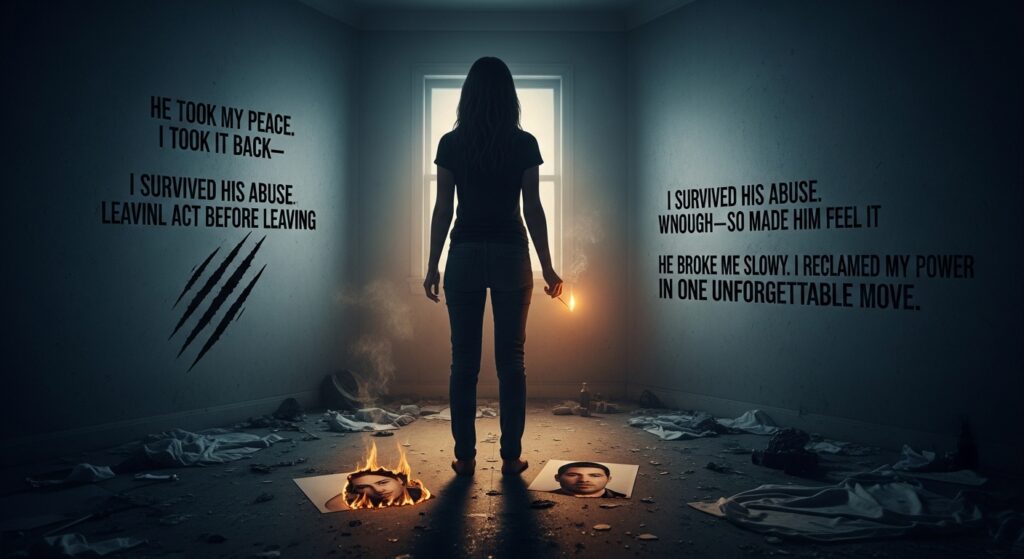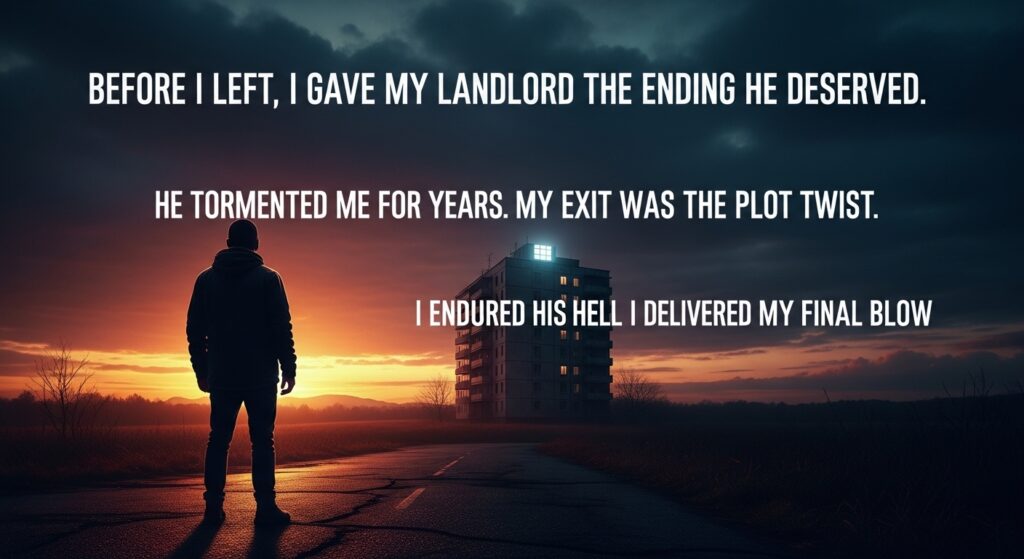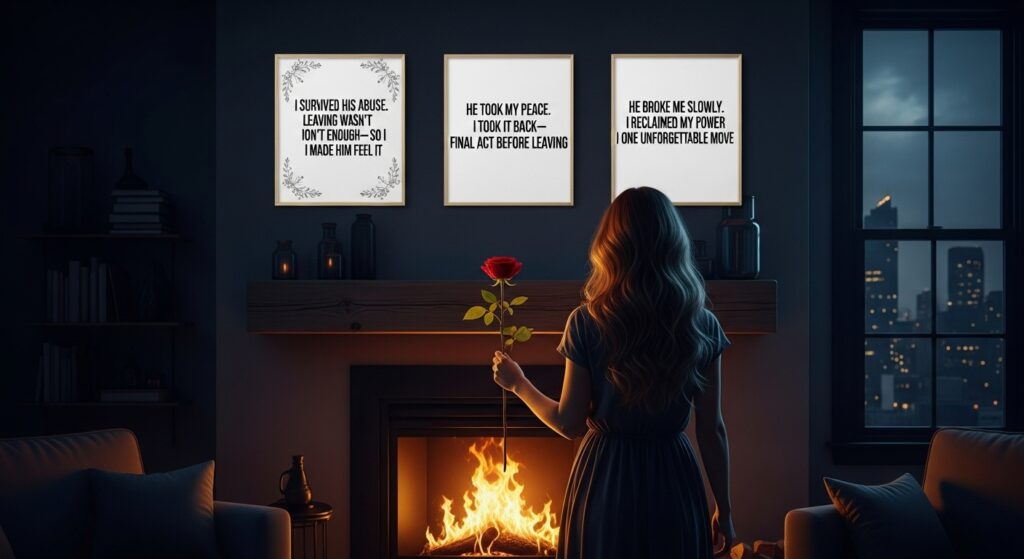For four years, I lived in an apartment that felt more like a trap than a home. The walls were thin, the plumbing unreliable, and the air heavy with mold. But the worst part wasn’t the peeling wallpaper or the broken heater—it was the man who owned it.
Mr. Wildrick, my landlord, was the kind of person who made you feel watched even when you were alone. He had a habit of showing up unannounced, knocking on my bathroom door while I was soaking in the tub, claiming he was “just checking for leaks.” His presence was invasive, his tone dismissive, and his rules ever-changing.

When I first moved in, the place was a wreck. I spent my own money repainting, replacing fixtures, and scrubbing years of neglect off every surface. I turned that dump into a home—not for him, but for myself. I needed a sanctuary. What I got was surveillance.
He raised the rent without warning. Refused to fix the mold that sent me to the ER. Dismissed my concerns with a shrug and a smirk. “It’s livable,” he’d say, as if my lungs weren’t burning and my dignity wasn’t crumbling.
I stayed because I had nowhere else to go. I stayed because I believed things might improve. But they didn’t. They got worse.
Until one day, I stopped waiting.
I found a new apartment. Clean. Quiet. Safe. I signed the lease and marked the date. But I wasn’t going to leave quietly. Not after everything he’d put me through.

So I planned my exit with precision.
I documented everything—photos of the mold, videos of his surprise visits, receipts for every repair I paid for myself. I compiled it all into a neat folder and sent it to the local housing authority. I filed a formal complaint. I wasn’t the first tenant he’d harassed, and I wouldn’t be the last. But I could be the one who finally held him accountable.
Then came the final touch.
Before I left, I hosted a small farewell gathering. Friends came over, helped me pack, and shared stories of their own landlord nightmares. We laughed, we cried, we toasted to freedom. And before I locked the door for the last time, I left behind a letter.
It wasn’t angry. It wasn’t cruel. It was honest.

I told him what it felt like to live under his thumb. I told him how his negligence had affected my health, my peace, my sense of safety. I told him that I had reported him—and that I hoped, for the sake of future tenants, he’d learn what it meant to be responsible.
I didn’t vandalize. I didn’t scream. I didn’t stoop to his level.
I simply walked away—with my head high and my story told.
Weeks later, I heard from a neighbor that the housing authority had launched an investigation. Mr. Wildrick was furious. But I wasn’t afraid anymore. I was gone. And I had given him the ending he deserved—not with revenge, but with truth.
Because sometimes, the most powerful payback isn’t loud. It’s quiet. It’s deliberate. It’s the moment you choose dignity over destruction.
And that’s how I reclaimed mine.


